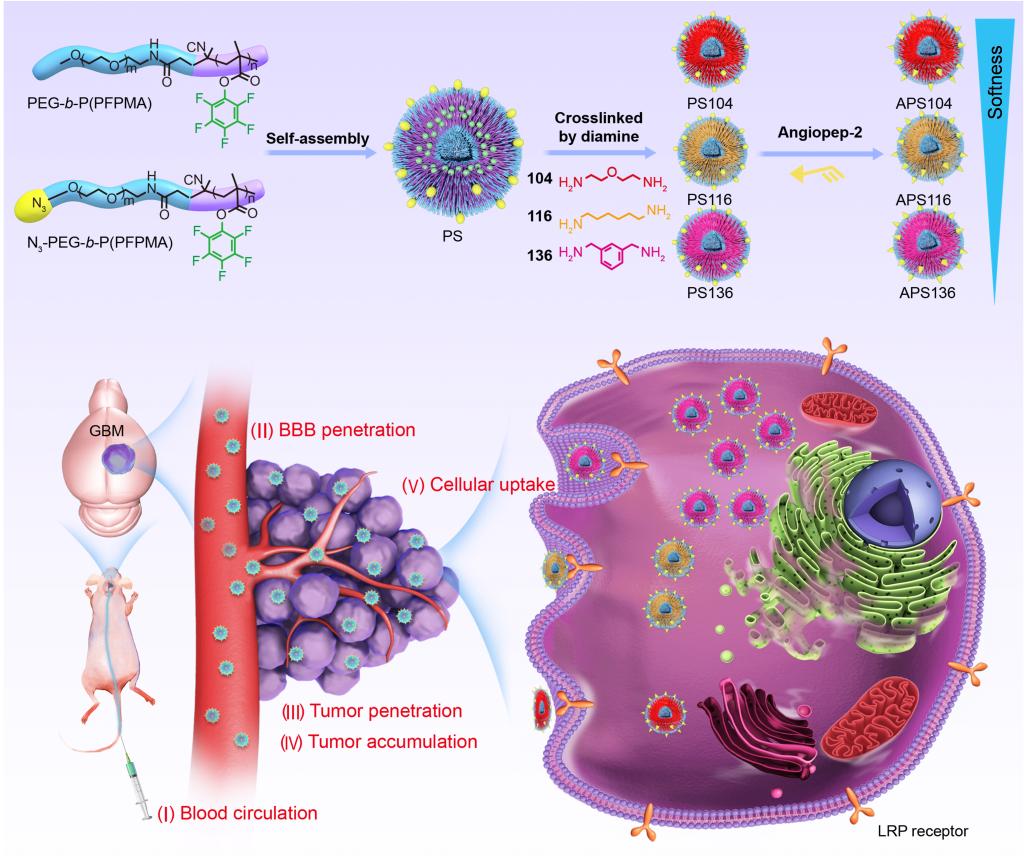Abstract
Nanoformulations show great potential for delivering drugs to treat brain tumors. However, how the mechanical properties of nanoformulations affect their ultimate brain destination is still unknown. Here, a library of membrane-crosslinked polymersomes with different elasticity are synthesized to investigate their ability to effectively target brain tumors. Crosslinked polymersomes with identical particle size, zeta potential and shape are assessed, but their elasticity is varied depending on the rigidity of incorporated crosslinkers. Benzyl and oxyethylene containing crosslinkers demonstrate higher and lower Young’s modulus, respectively. Interestingly, stiff polymersomes exert superior brain tumor cell uptake, excellent in vitro blood brain barrier (BBB) and tumor penetration but relatively shorter blood circulation time than their soft counterparts. These results together affect the in vivo performance for which rigid polymersomes exerting higher brain tumor accumulation in an orthotopic glioblastoma (GBM) tumor model. The results demonstrate the crucial role of nanoformulation elasticity for brain-tumor targeting and will be useful for the design of future brain targeting drug delivery systems for the treatment of brain disease.

